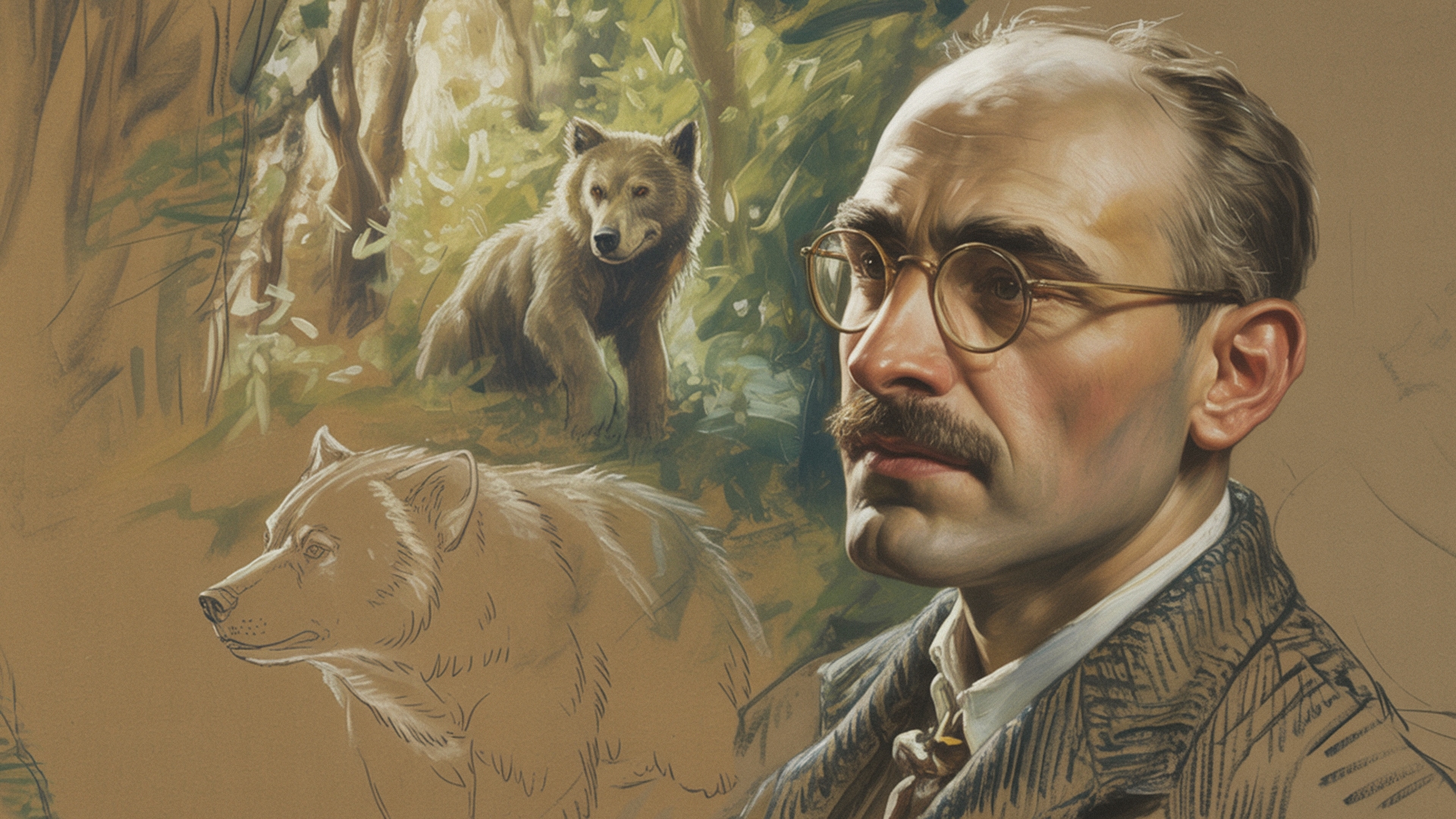
The Foundation for a Better Life
It’s a Jungle Out There.
Rudyard Kipling, author of the timeless story about Mowgli and his animal friends, was more than a great storyteller and Nobel Prize laureate. He was a great humanitarian, caring for soldiers, mentoring young writers and donating his resources to alleviating poverty.
By The Foundation for a Better Life
The enchanting stories of Rudyard Kipling owe their imaginative settings to the place he grew up: India.
Born in Bombay in 1865, young and quite privileged, Kipling spent his youth inspired by the vibrant colors and customs of colonial India. His voice rose out of the people he met, the jungles he explored, and the constant tension between formality and curiosity.
Best known for his “Jungle Book” stories, Kipling explored the relationship between man and animals, and between the animals themselves. He observed the hierarchies in the animal kingdom and the mercy humans are capable of, as well as the brutality of war.
Kipling’s literary voice was shaped as much by Indian fables as by English formal education. He spent time in tranquil British compounds, chaotic Indian cities, immersed himself in local folklore, and was jarred awake by the unsympathetic and sometimes cruel system of a formal British education when sent to an English boarding school.
As Imperial England expanded its borders, conflicts arose at the edges. After military school, the young Kipling returned to India to work as a journalist for an English publication, reporting on the activities of the British military. He soon began working on literary projects, gaining wide attention for his poem “Gunga Din,” a narrative that honors the lowly water carrier on the front lines, risking his seemingly insignificant life to save soldiers from dying of thirst.
“The Jungle Book” was next, and it was so original, so full of adventure, that schoolkids around the world embraced it almost immediately. The story, which has endured for over 150 years, follows the life of Mowgli, a boy left alone in the jungle and raised by a pack of wolves. It is a story of honor, of compassion, of revenge and redemption. But mostly, it is a story of a boy discovering, bit by bit, who he is. And in that way, it is the story of each of us.
It’s remarkable to read Kipling’s moral tales in “Just So Stories” for children, and his deeper, more reflective poems that grapple with the rapidly changing world of the 20th century. What we discover is a man, like Mowgli, searching for meaning, struggling to elevate his readers with observations and the object lessons of moral stories. When we look at his personal life, we see, at the center, his empathy.
Kipling lost a son to war. He lost a daughter to pneumonia at a young age. But he never lost his desire to alleviate suffering. He used his fame and resources to support military charities, raising money for war widows and ensuring that memorials were erected to remember the fallen. He supported libraries and schools with donations and lectures, often mentoring young writers personally. And he allocated many of his resources to alleviating poverty, particularly after natural disasters.
In Kipling’s poem, when a war-toughened soldier receives water from the lowly Gunga Din, the soldier has a change of heart. Though he has mistreated the boy, he recognizes in him a great strength of character. “You’re a better man than I, Gunga Din, Gunga Din ….”
Throughout all of Rudyard Kipling’s writing, we discover one continuous admonition: We can be better. Getting our observations down on paper helps us become more empathetic. And like Mowgli’s self-discovery, we see who we can become.
We Can Be Better… PassItOn.com®
Copyright ©2025 The Foundation for a Better Life. All rights reserved. Available under a Creative Commons Attribution NonCommercial-NoDerivatives 4.0 License (international): https://creativecommons.org/licenses/by-nc-nd/4.0/
The Foundation for a Better Life, a 501(c)(3) non-profit organization, gives your newspaper permission to publish these stories in print and electronic media (excluding audio and video), provided the stories are published in their entirety, without modification and including the copyright notice. For any modification, permission must first be obtained from the Foundation by emailing media-relations@passiton.com. Thank you.
We add new stories each month. If you'd like to be notified when we publish new stories, enter your information below.




